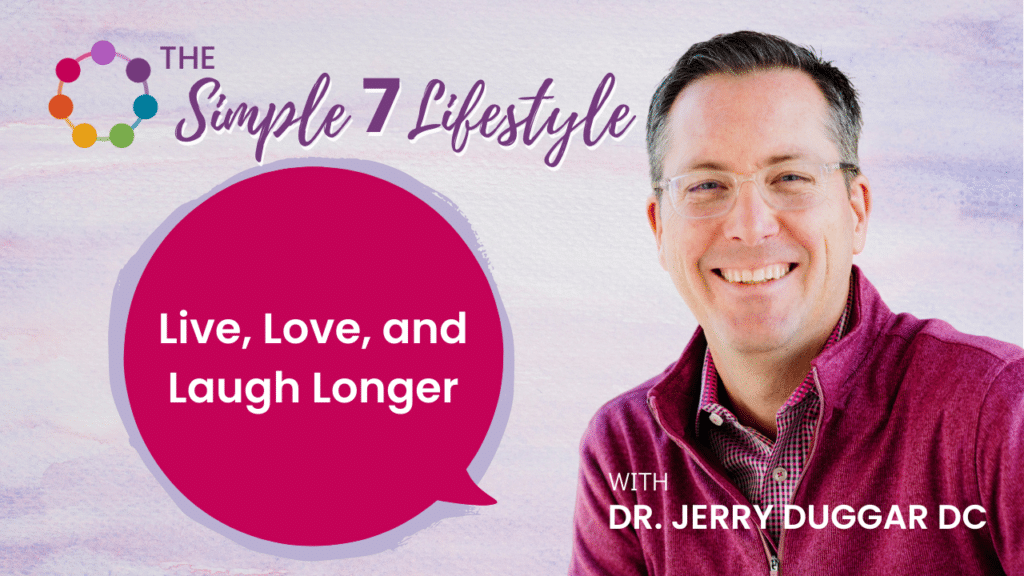Listen on iTunes

Episode Transcript
Hello friends,
I was studying the New Testament a while back and a certain story prompted me to do a quick google search to learn what the average life expectancy was for someone living in those times. Not too surprisingly, I learned that it was about 40 years old. That number can be a bit misleading since the main issue was infant mortality. If a person made it to the age of 30, there was a higher chance that they would make it to 50 or 60. Still not long from our current perspective.
Since the dawn of time, the main drivers of death have been a traumatic injuries and infection from lack of hygiene and sanitation.
Only since modern medicine made significant inroads in lowering the death rate from these causes, have we even had the luxury to think about the question of human lifespan potential.
Early on in my career, I picked up a fascinating book called “We Live Too Short and Die too Long” by gerontologist, Dr. Walter Bortz. According to his hypothesis and studies, he felt that the normal human lifespan was between 110 and 120 years. Instead, most of the population was aging faster than appropriate due to modern lifestyles.
It’s kind of a Catch-22. Modernity dramatically changed our ability to survive infection and trauma but the same ambitions to alter the natural world brought with it unintended consequences that foster chronic disease.
I have patients in their 20s whose body parts are failing and have to be removed surgically. What’s up with that? Other patients are kept alive on handfuls of drugs that rob them of quality of life. In many ways, medicine has just allowed us to die over longer periods of time.
These are now serious moral dilemmas that we each have to grapple with, either for ourselves or for our loved ones. Do we really want longevity if it comes at the expense of quality?
Some people have asked, “Do we want to add years to our life, or do we really want to focus on adding life to our years?” But what if that is really a false dichotomy? What if there is a way to thread the needle and do both?
I think that there is. I think that we can make a conscious effort to both extend our life and increase the quality and happiness that we enjoy.
While an individual’s experience of aging is partly determined by genetics, we know that a host of environmental factors like how you eat, move, breathe, sleep, think, play, and love, play a much more significant role in healthy aging and the prevention of age-related conditions.
When it comes down to it, it’s all about good food, good relationships, and good attitudes that help us live, laugh and love longer!
Today, I just want to touch on three areas and encourage you to pay special attention to them this week.
Good Nutrition
We’ll start with good nutrition. We literally eat pounds of food every day. We tend to think of this food as fuel, but it is much more than that. Food is information to our body. It is telling our cells exactly what to do. It can be a powerful medicine or a dangerous poison. What we eat, when we eat, and even in what mental state we are in when we eat, all shape our biology in profound ways.
A diet rich in a variety of whole, real foods provides the foundation for health.
Each of our meals should be loaded with a rainbow of colors from non-starchy veggies. These provide a wealth of vitamins, and minerals, and are full of phytonutrients that have a profound impact on our health. In addition, we need a minimum of 3-6 oz of healthy proteins from grass-fed animals and other plant proteins per meal as well as healthy, natural fats from both plants and animals. Add in 1-2 servings per day of low-glycemic fruits. A modest amount of beans, legumes, and non-gluten grains can be added as tolerated.
This should make up 90-95% of our diets, with the remaining 5% for special occasions where less ideal foods and snacks can be enjoyed.
Live Longer and Stronger
We know that this approach to good nutrition can boost immunity, fight illness-causing toxins, keep weight in check, and reduce the risk of heart disease, stroke, high blood pressure, type-2 diabetes, bone loss, and cancer.
Sharpen Your Mind
People who eat fruit, leafy veggies, fish, and nuts packed with omega-3 fatty acids may be able to improve focus and decrease their risk of Alzheimer’s and other neurodegenerative diseases.
Feel Better
Wholesome meals can give you more energy and boost your mood. It’s all connected—when your body feels good, you feel happier inside and out.
If you want to go a bit deeper on this topic, Tammie and I discussed this approach in Episode 6 of the podcast and we discuss it in Chapter 6 of our book, The Simple 7 Lifestyle. By the way, we still have free copies available for a limited time. You can get your hands on one by visiting our website www.duggarwellness.com
Good Relationships
Now let’s talk about Loving Well. Being in a loving, healthy relationship has been scientifically studied and includes the following benefits:
Less Stress
Being in a committed relationship is linked to less production of cortisol, a stress hormone. This suggests that married or paired people are less responsive to psychological stress and that the social and emotional support that comes with having a partner can be a great way to combat stress. It is certainly true that when relationships aren’t working well, they can also be a major source of stress. It really comes down to our need to develop the skills and perspectives that can create a relationship where there is room for two people to be operating at their highest potential. A relationship of equals where freedom and acceptance are the hallmarks.
Greater Sense of Purpose
It has been said that humans have a profound need to hold onto their autonomy or their sense of self, but we also have a profound need to belong to something bigger than ourselves. There is an inherent tension between these two needs. When this dynamic tension is working productively, we find the greatest happiness and purpose.
Longer Life
Research also suggests that having healthy social relationships makes a more significant impact on avoiding early death.
I think that this was one of the most interesting findings from the popular “blue zones” book where they looked at areas in the world where many people lived past 100 years old. They all seemed to have a very strong sense of community and involvement in social networks.
Being in a community of people is evolutionarily wise. It is a safety mechanism that serves every form of animal life on the planet so it only makes sense that it infers lots of benefits. But not all communities are healthy ones. They’re made up of flawed people just like us so they are likely to drive us crazy at times but somehow, in the long run, they are still more beneficial than harmful.
Maybe the key to relationships is to think of them through the same lens as I just did with food. A variety of connections is important. Make sure that they are “real” and not “fake” connections based on the “emotional nutrients” that they provide and are not full of “junk calories” like cheap validation-based friendships.
Good Attitude
Last but not least, let’s talk about our mindset. There is no getting through life without difficulty, but with the proper perspective, even though things can work for your own good.
Keep It Positive
Optimism, positive self-talk, smiling and laughing – focusing on the good in everything and everyone around you creates a resilient “mental/emotional immune system” that keeps us alive and thriving regardless of circumstance. Researchers at the University of Cologne found that people who are cynical about human nature—who see others as egoistic, deceitful, and evil—tend to earn less money and it’s obvious that they are less happy. What’s the point of long life if you aren’t happy?
Have a Purpose
One of the keys to a healthy mindset is to frequently reflect on a meaningful reason for your life. We call that “finding your why” or connecting to your “powerful purpose”.
In a world full of busyness and distractions, it is sometimes difficult to maintain focus on the big-picture goals for your life.
Without a goal, there is nothing to work for and without commitment to that goal, you’ll never achieve it. Finding your purpose, or reason to do something is essential. When you are connected to your purpose, there is no obstacle you can’t overcome.
These are simple habits that have been proven to not only increase life span but also health span. Pick the lowest-hanging fruit from this list and put some attention towards it this week. Your friends, co-workers, kids, and grandkids will thank you.
Remember, a life well lived is a life focused on impact. It isn’t about the number of years one lives. It is about the quality of life that we live and the meaning and impact that a high quality of life has to offer to those around us.
Okay, that’s all for today. Remember to get out there and do good in the world today!
Resources:
If you’re one of the many people struggling with a chronic health problem and feeling stuck, you might consider working with us directly! We work with local patients and folks from all over the US through our online coaching program. Our personalized functional wellness membership programs combine the expertise of a functional medicine-trained doctor, and a health coach trained in holistic nutrition and lifestyle. We can help you along your journey!
Get Your FREE COPY of ‘The Simple 7 Lifestyle’ book here.
Also, be sure to join our Facebook Community if you’re looking to connect and interact with other like-minded listeners who are on the healthy lifestyle journey: https://www.facebook.com/groups/445858143827256
Disclaimer: This podcast is for educational purposes only and is not a substitute for professional medical care by a licensed practitioner. This podcast is provided on the understanding that it does not constitute medical or other professional advice or services. If you’re looking for help on your journey, we recommend that you seek out a qualified functional medicine practitioner.
 160 N Main, Bountiful, UT 84010
160 N Main, Bountiful, UT 84010  801-677-7878
801-677-7878
